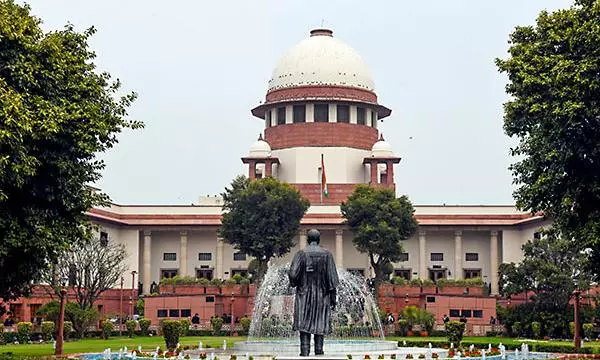
Waqf Act: Supreme Court proposes to stay key provisions
The top court also expressed concern over the violence that followed the law's enactment and said it was disturbing when it was seized of the matters

The Supreme Court on Wednesday (April 16) proposed to stay certain key provisions of the Waqf (Amendment) Act, 2025, including the power to denotify properties declared as waqf by courts and inclusion of non-Muslims in central Waqf councils and boards.
The top court proposed to pass the order, which was opposed by the Centre as it sought a detailed hearing before any such interim order.
The hearing relating to 72 petitions against the constitutionality of the Waqf (Amendment) Act, 2025 took place before a bench of Chief Justice Sanjiv Khanna and Justices Sanjay Kumar and K V Viswanathan.
Hearing to continue on Thursday
The Bench, which will continue with the hearing on Thursday, was miffed over the inclusion of non-Muslims in the central waqf councils and boards and asked the Centre whether it was willing to include Muslims in Hindu religious trusts.
After hearing solicitor general Tushar Mehta for the Centre and senior lawyers including Kapil Sibal, Rajeev Dhavan, Abhishek Singhvi, C U Singh for Muslim bodies and individual petitioners, the CJI proposed to issue the notice and to pass an interim order, saying it will "balance the equities".
Observing some provisions could have "grave ramifications", particularly those that potentially undermine judicially recognised waqf properties, the CJI proposed the order.
"The properties declared as waqfs by the courts should not be de-notified, whether they are by waqf-by-wser or waqf by deed while the court is hearing the challenge to the Waqf Amendment Act 2025," the CJI proposed.
The top court also expressed concern over the violence that followed the law's enactment and said it was disturbing when it was seized of the matters.
Also read: Waqf Act violence in Bengal: Who gains from the chaos?
The Bench also hinted to stay a provision of the amended law, which says a waqf property will not be treated as waqf during the inquiry of the collector to decide if the property is a government land.
Exclusive: Kapil Sibal calls Waqf law 'unconstitutional', alleges political agenda
"All members of waqf boards and the central waqf council must be Muslims, except the ex-officio members," the CJI said.
Sharp exchanges
The Bench took note of the provision-wise objections to the Act and expressed reservations on several aspects of the legislation, including the inclusion of non-Muslims in the central waqf council and state waqf boards.
It also objected to empowering district collectors to adjudicate disputes related to waqf properties and the provisions allowing de-notification of properties declared as waqf by competent courts.
"Ordinarily, courts do not interfere at the admission stage when a law is passed. But this case may warrant an exception. If a property declared as waqf by user is denotified, it can have grave ramifications," the CJI said.
The hearing saw sharp exchanges between the bench and the solicitor general when the judges questioned the logic behind permitting non-Muslims in waqf governance, while a similar reciprocity did not apply to Hindu religious endowments.
"Are you suggesting that Muslims could now be part of Hindu endowment boards as well? Please state it openly," it told Mehta.
Centre’s caveat
The Centre, on April 8, filed a caveat in the apex court and sought a hearing before any order was passed in the matter. A caveat is filed by a party in the high courts and the apex court to ensure that no orders are passed without hearing it.
Also read: Waqf Act: AIADMK slams Modi’s remarks, says BJP 'bulldozing' one section of people
The Centre recently notified the Waqf (Amendment) Act, 2025, which got the assent of President Droupadi Murmu on April 5 after its passage from Parliament following heated debates in both houses. The bill was passed in the Rajya Sabha with 128 members voting in favour and 95 opposing it. It was cleared by the Lok Sabha with 288 members supporting it and 232 against it.
Follow this space for more live updates
Live Updates
- 16 April 2025 2:33 PM IST
SC asks parties to address two points, including if the matter be sent to a high court.
Kapil Sibal: "Who is the state to tell us how inheritance will take place?"
CJI: "Inheritance is defined by Parliament under the Hindu Succession Act."
- 16 April 2025 2:06 PM IST
Kapil Sibal, Rajeev Dhavan, AM Singhvi, others on petitioners' side
Senior advocates Kapil Sibal, Rajeev Dhavan, AM Singhvi, CU Singh and others are on the petitioners' side. Solicitor General of India Tushar Mehta is resresenting the Union.

